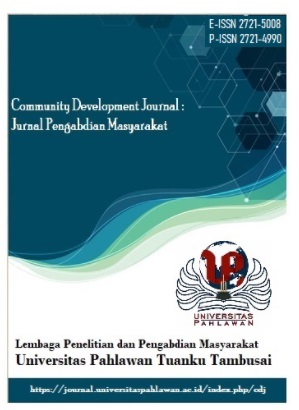OPTIMIZATION OF THE USE OF TECHNOLOGY IN ENGLISH LEARNING BASED ON TPACK (TECHNOLOGICAL PEDAGOGICAL CONTENT KNOWLEDGE)
DOI:
https://doi.org/10.31004/jrpp.v8i1.43126Keywords:
TPACK, Technology Integration, English Learning, Digital Education, Optimization StrategiesAbstract
The optimization of technology in English learning based on the Technological Pedagogical Content Knowledge (TPACK) framework plays a crucial role in enhancing the effectiveness and engagement of language education. This study examines the implementation of TPACK-based technology in English learning, identifying both its benefits and challenges. The findings indicate that integrating digital tools, such as Learning Management Systems (LMS), interactive applications, and adaptive learning software, positively impacts learning quality by increasing accessibility, student motivation, and active participation. However, several obstacles persist, including limited technological infrastructure, insufficient lecturer competence, and a lack of interactive digital learning materials. To address these challenges, this study recommends targeted optimization strategies, including professional development programs for lecturers, improved technology infrastructure, the adoption of a Bring Your Own Device (BYOD) policy, and the development of engaging digital content. Furthermore, a differentiated learning approach utilizing adaptive technology is essential to accommodate students’ diverse learning preferences. The study highlights the need for continued research on the long-term effectiveness of TPACK-based technology integration and its impact on students' communication skills in English. By implementing these strategies, English learning can become more innovative, interactive, and aligned with modern educational demands.References
Aljohani, M. (2022). The role of Learning Management Systems in promoting independent learning and course administration. Journal of Educational Technology and Innovation, 15(3), 45-60.
Beatty, K. (2013). Teaching & researching: Computer-assisted language learning. Routledge.
Dabbagh, N., & Fake, H. (2023). Collaborative learning in digital environments: Enhancing student engagement through online discussion and multimedia projects. Online Learning Journal, 27(2), 78-95.
Ertmer, P. A., & Ottenbreit-Leftwich, A. (2010). "Teacher technology change: How knowledge, confidence, beliefs, and culture intersect." Journal of Research on Technology in Education, 42(3), 255-284.
Graham, C. R., Henrie, C. R., & Gibbons, A. S. (2019). Exploring pedagogical foundations of blended learning. Routledge.
Hew, K. F., & Brush, T. (2007). "Integrating technology into K-12 teaching and learning: Current knowledge gaps and recommendations for future research." Educational Technology Research and Development, 55(3), 223-252.
Kessler, G. (2018). "Technology and the future of language teaching." Foreign Language Annals, 51(1), 205-218.
Koehler, M. J., & Mishra, P. (2009). "What is technological pedagogical content knowledge (TPACK)?" Contemporary Issues in Technology and Teacher Education, 9(1), 60-70.
Koehler, M. J., & Mishra, P. (2019). The TPACK framework for teacher knowledge. Educational Technology.
Koehler, M. J., & Mishra, P. (2019). The TPACK framework for teacher knowledge. Educational Technology.
Lo, C. K., & Hew, K. F. (2022). The effects of the flipped classroom on student learning and engagement: A meta-analysis. Educational Research Review, 36, 100433.
Lo, C. K., & Hew, K. F. (2022). The effects of the flipped classroom on student learning and engagement: A meta-analysis. Educational Research Review, 36, 100433.
Mishra, P., & Koehler, M. J. (2006). "Technological pedagogical content knowledge: A framework for integrating technology in teacher knowledge." Teachers College Record, 108(6), 1017-1054.
Selwyn, N. (2020). Education and technology: Key issues and debates. Bloomsbury Publishing.
Selwyn, N. (2021). Education and technology: Key issues and debates. Bloomsbury Publishing.
Selwyn, N. (2021). Education and technology: Key issues and debates. Bloomsbury Publishing.
Sun, Y., & Zhang, L. (2023). Enhancing language acquisition through speech recognition technology: A study on pronunciation accuracy and feedback mechanisms. Language Learning & Technology, 27(1), 112-130.
Wang, A. I., & Tahir, R. (2023). The impact of gamification on student motivation and knowledge retention in language learning. Computers & Education, 193, 104667.
Wang, A. I., & Tahir, R. (2023). The impact of gamification on student motivation and knowledge retention in language learning. Computers & Education, 193, 104667.
Wang, Y., & Tang, X. (2020). Digital divide and higher education: Addressing accessibility and equity in online learning. Journal of Educational Technology.
Warschauer, M., & Meskill, C. (2000). "Technology and second language teaching and learning." Handbook of Undergraduate Second Language Education, 15(1), 303-318.
West, M. (2021). Digital learning and BYOD: Expanding access and engagement in higher education. Journal of Online Learning Research, 7(2), 125-140.
Downloads
Published
How to Cite
Issue
Section
License
Copyright (c) 2025 Doni Hadi Irawan, Muhamad Alfi Khoiruman

This work is licensed under a Creative Commons Attribution-ShareAlike 4.0 International License.






